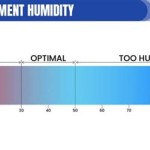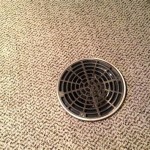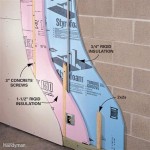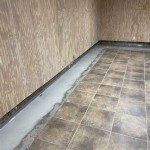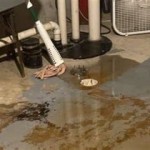Why Did My Basement Flood?
A flooded basement can be a homeowner's worst nightmare, causing extensive damage and disruption. Understanding the causes of basement flooding is crucial for preventing future occurrences and minimizing the impact.
1. Heavy Rainfall: Excessive rainfall, especially during severe storms, can overwhelm drainage systems and cause water to accumulate around foundations. If the basement walls are not properly waterproofed or have cracks, water can seep in through these openings. 2. Foundation Issues: Structural problems with the foundation, such as cracks, settling, or improper grading, can create pathways for water to enter the basement. Water can seep through these cracks or accumulate around the foundation, putting pressure on the walls and eventually leading to flooding. 3. Clogged Drains: Gutters, downspouts, and drainage pipes play a vital role in diverting water away from the foundation. If these drains become clogged with debris, leaves, or ice, rainwater can overflow and accumulate around the basement walls. 4. Sump Pump Failure: Sump pumps are designed to remove excess water from the basement. If a sump pump fails due to power outages, mechanical issues, or improper installation, water can accumulate in the basement and cause flooding. 5. Sewer Backup: Sewer lines can become clogged by tree roots, debris, or grease buildup. If the sewer backs up, wastewater can overflow into the basement through drains or pipes. 6. Lateral Water Pressure: When the soil around the foundation becomes saturated with water, it exerts pressure on the walls. If the walls are not strong enough or properly reinforced, they can bow or crack, allowing water to enter the basement. 7. Poor Grading: The land surrounding the foundation should slope away from the house to prevent water from pooling around the walls. If the grading is incorrect, water can accumulate near the foundation and eventually seep into the basement. Preventing Basement Flooding: 1. Install and maintain a proper drainage system, including gutters, downspouts, and drainage tiles around the foundation. 2. Regularly inspect the foundation for cracks or settling and seal any openings promptly. 3. Ensure gutters and downspouts are clear of debris and functioning properly. 4. Install and maintain a reliable sump pump with a battery backup system for power outages. 5. Avoid planting trees or shrubs too close to the foundation, as their roots can damage drain lines. 6. Have the sewer line inspected and cleaned regularly to prevent clogs. 7. Ensure the ground around the foundation slopes away from the house for proper drainage. By understanding the causes of basement flooding and implementing preventive measures, homeowners can significantly reduce the risk of water damage and protect their basements from costly repairs and disruptions.
The Ultimate Basement Drainage System For Flooding

Why Did My Basement Flood With Sewage Reid Pederson Drainage

Causes Of Basement Flooding Utilities Kingston

How To Clean A Flooded Basement Reviews By Wirecutter
.webp?strip=all)
Water In Basement 5 Likely Causes What To Do Next

Why Is Your Basement Leaking How Hydrostatic Pressure Leads To Flooding

Why Does My Chicago Basement Flood

Water In The Basement What To Do Causes Prevention
.webp?strip=all)
Water In Basement 5 Likely Causes What To Do Next

9 Reasons Your Basement Might Leak In The Winter

